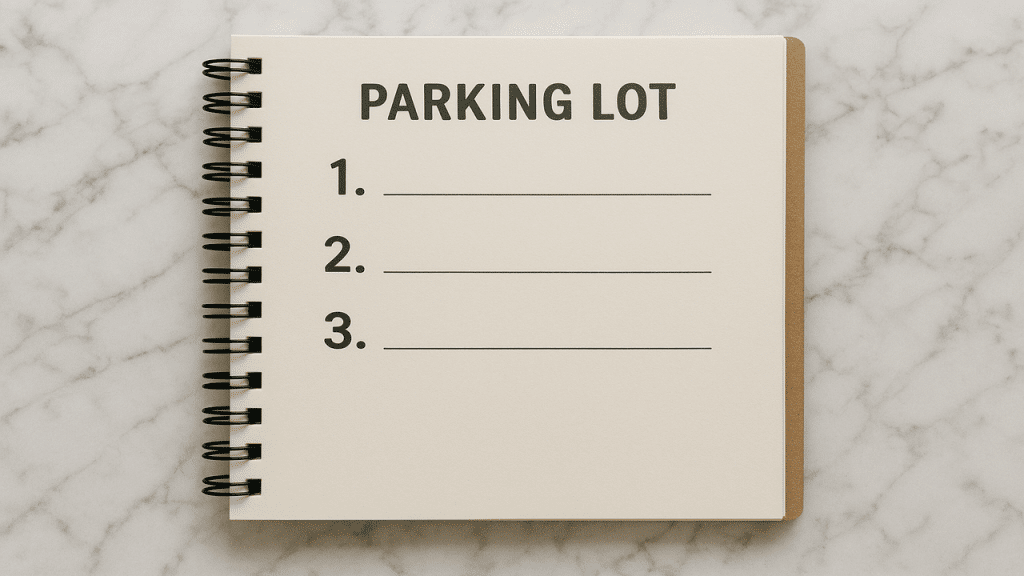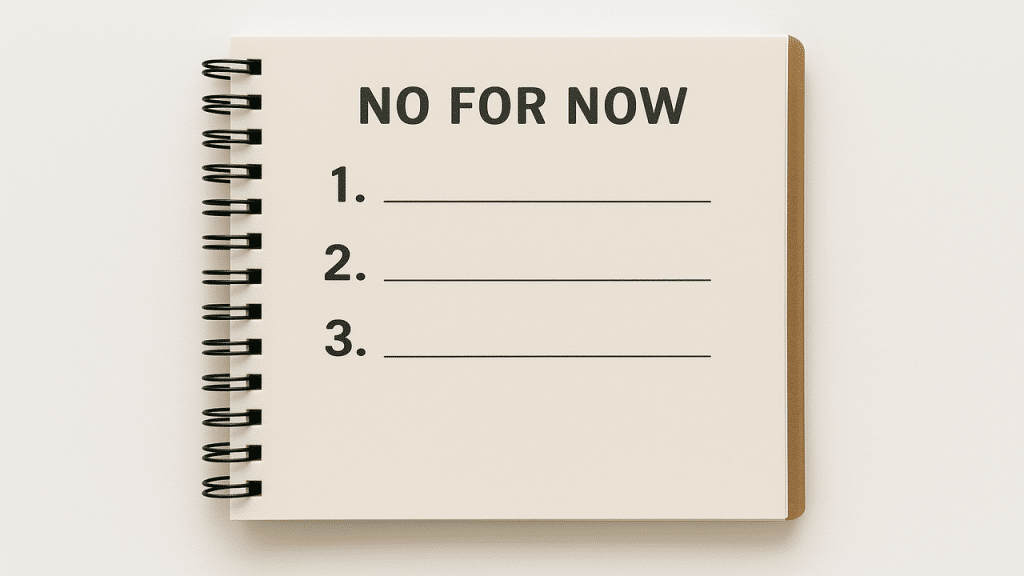
It’s not just about being busy–it’s about being buried. Most of us aren’t short on ambition. We’re short on time, clarity, and margin. But simplification doesn’t mean slacking off. It means building a life that’s less chaotic and more intentional–where you’re actually moving forward, not just spinning in circles. You don’t need more hacks. You need a better rhythm. Here’s how to simplify your schedule without letting anything important slip through the cracks.
1. Audit Your Weekly Time Like a Budget

Track everything for one week. Meetings, chores, social media, commute, doomscrolling–don’t just guess. You can’t simplify what you haven’t measured. Most people overestimate how much they work and underestimate how much time they lose to friction. Once you see the truth in black and white, you’ll find at least 5–10 hours of clutter you can clean up right away.
2. Name Your Top 3 Non-Negotiables

What are the three activities you refuse to drop, no matter what? Whether it’s exercise, weekly dinner with family, or solo time to decompress, name them–and protect them. Everything else should flex around these. Without anchors, your week will get hijacked by other people’s priorities. Simplification starts with knowing what matters most.
3. Batch Similar Tasks Together

Context switching kills momentum. Try grouping similar tasks–like responding to emails, running errands, or doing admin work–into dedicated blocks. Instead of writing one email every hour, answer them all in a 45-minute sprint. This trains your brain to stay focused and clears space for deeper work or rest later.
4. Create a Weekly Theme

Assign a focus to each day of the week: Monday for meetings, Tuesday for deep work, Wednesday for errands, and so on. This gives your week a flow and helps you say no more easily. When everything has a place, you stop squeezing tasks into every open crack of time–and that’s where the real breathing room shows up.
5. Use a Parking Lot List

Not every good idea deserves your attention today. Keep a “parking lot” list for tasks, ideas, or opportunities that aren’t urgent but you don’t want to forget. This keeps your daily to-do list focused and prevents distraction disguised as productivity. Revisit the list weekly–you’ll often find what felt urgent wasn’t essential.
6. Say “Later,” Not “Yes”

You don’t have to decline everything outright. “Later” is a powerful middle ground. It lets you honor the request without derailing your schedule. Try saying, “I’d love to, but I’m booked this week–can we revisit next month?” Respect your bandwidth. A thoughtful delay is often better than a rushed yes followed by regret.
7. Set Time Limits for Recurring Tasks

Give your tasks a time box. Forty-five minutes for email. Thirty minutes for meal prep. One hour to clean. Parkinson’s Law says work expands to fill the time you give it. If you stop letting simple things spill into hours, you’ll recover precious time and reduce the decision fatigue that comes with open-ended tasks.
8. Build in Buffer Time

If your day is scheduled like Tetris, one delay wrecks the whole game. Start padding your schedule with buffer zones–15 to 30 minutes between calls, errands, or work blocks. This gives you space to breathe, reset, or handle the unexpected without the whole day collapsing. Peace doesn’t come from perfection–it comes from margin.
9. Automate One Thing Per Month

Pick one routine task–paying bills, ordering groceries, backing up files–and automate it. Use tools, subscriptions, or systems that remove it from your mental load. One automation a month equals twelve fewer things to worry about a year from now. Simplifying isn’t always subtraction. Sometimes it’s delegation–to a machine.
10. Make One Decision Per Category

Decide once, not daily. Create a default weekly menu. A standard workout split. A go-to outfit formula. This limits decision fatigue and clears space for bigger thinking. You don’t need to be rigid–you just need to stop spending 15 minutes deciding on things that don’t change your life.
11. Don’t Overbook Future You

It’s easy to say yes to things weeks in advance because future you always feels like they’ll have more energy and time. They won’t. Treat your future calendar like your current one–protect it from overcommitment. Ask: “Would I do this if it were happening tomorrow?” If not, it’s a no.
12. Set a Shutdown Ritual

Every day needs a hard stop. Choose a time to close the laptop, tidy your space, and mentally shift out of “doing” mode. Without a shutdown cue, your day bleeds into your night and everything feels urgent. A ritual–even 10 minutes long–signals to your brain that it’s safe to rest.
13. Use One Calendar Only

Multiple calendars = multiple points of failure. Keep everything–work, personal, family–on a single calendar so you can see the full picture. Color code if you need to, but don’t juggle apps or planners. Simplicity lives in centralization. If it’s not in your one calendar, it doesn’t exist.
14. Cancel Without Guilt

You’re allowed to cancel. Life happens. If something no longer fits your energy, time, or priorities, bow out respectfully–but firmly. You don’t need an elaborate excuse. A clear, kind “I need to step back from this for now” is enough. Simplifying often means pruning what used to make sense but no longer does.
15. Protect White Space Like a Meeting

If you don’t block out time to not be productive, someone else will fill it for you. Schedule white space like a meeting–an hour for a walk, reading, or doing absolutely nothing. That’s not wasted time; it’s recovery time. And recovery is what keeps you from burning out in the first place.
16. Create a “No for Now” List

Some things are good–but not good right now. Make a “No for Now” list: projects, classes, hobbies, even social invites you want to revisit later. This lets you mentally release them without feeling like you’re giving up. It’s not forever–it’s just not today. That’s how you simplify without self-denial.
17. Delegate Even If It’s Not Perfect

Stop waiting for someone to do it exactly like you. If you’re the bottleneck, perfection is the enemy. Delegate household chores, team tasks, or even small errands to others–even if they do it 80% as well. You’ll get more done and free up energy for what only you can do well.
18. Review Weekly, Not Just Daily

Daily planning helps you stay on track–but weekly reviews help you see the whole map. Every Sunday or Monday, glance at your upcoming week. What needs to be moved, canceled, prepped for, or simplified? One 30-minute review can save hours of stress and scrambling–and it gives your schedule strategy, not just survival.






Ask Me Anything